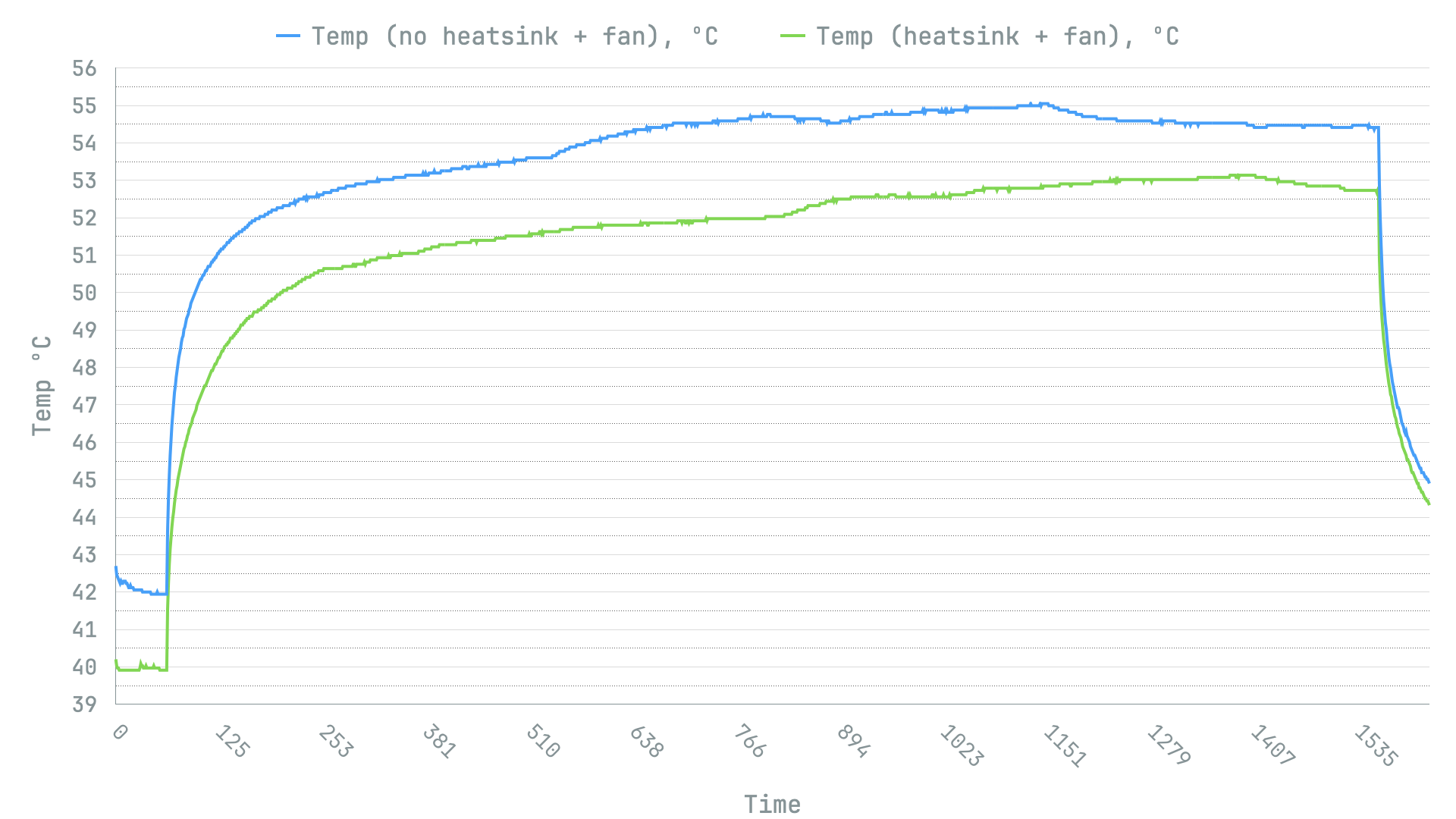Overclocking StarFive VisionFive 2
TL;DR
Apply a patch to JH7110_VisionFive2_upstream branch of starfive-tech/linux. make -j4; make modules_install; make install; make dtbs_install. Edit /boot/uEnv.txt fdtfile with a proper devicetree path. Profit!
Introduction
StarFive VisionFive 2 is a second generation of RISC-V boards from StarFive, which is based on StarFive JH7110 SoC with 4 of SiFive’s U74 cores.
The SiFive U74 max frequency in StarFive JH7110 is 1.5 GHz by default, but it can perform much better, because even under load the temperature never exceeds 60ºC, so overclocking is worth it. The JH110 can be overclocked to 1.8 GHz, which will be done in this article.
Warning: You are responsible for the safety of your board.
Prerequisites
- Tree of starfive-tech/linux
- Patch
- Some kind of cooling (just a fan, or with a heat sink)
Steps
Apply a patch
cd linux
git checkout JH7110_VisionFive2_upstream
git apply /path/to/patch/overclock_vf2.patch
Compile the kernel
make starfive_visionfive2_defconfig
make -j4
Install new kernel
Run as root
make modules_install
make install
make dtbs_install
Configure bootloader
Your bootloader should be configured to use starfive/jh7110-starfive-visionfive-2-v1.3b.dtb devicetree file.
If you are using default Debian option then your /boot/uEnv.txt file should look like this
fdt_high=0xffffffffffffffff
initrd_high=0xffffffffffffffff
kernel_addr_r=0x44000000
kernel_comp_addr_r=0x90000000
kernel_comp_size=0x10000000
fdt_addr_r=0x48000000
ramdisk_addr_r=0x48100000
boot_targets=distro mmc0 dhcp
# Fix wrong fdtfile name
fdtfile=KERNEL_VERSION/starfive/jh7110-starfive-visionfive-2-v1.3b.dtb
# Fix missing bootcmd
bootcmd=run load_distro_uenv;run bootcmd_distro
Reboot and have fun
After you successfully overclocked your VF2, you can ask yourself a question - “can it do better?”. No, it can’t.
Tests
All tests were performed out at an ambient temperature of 21ºC.
Stress
25-minute stress -c 8 run. Raw data (without heatsink) (timestamp, temp * 1000), raw data (with heatsink).

Known issues
Long boot from NVMe
My VisionFive 2 after overclocking now loads up to 7 minutes instead of 30 seconds. (Needs further research)